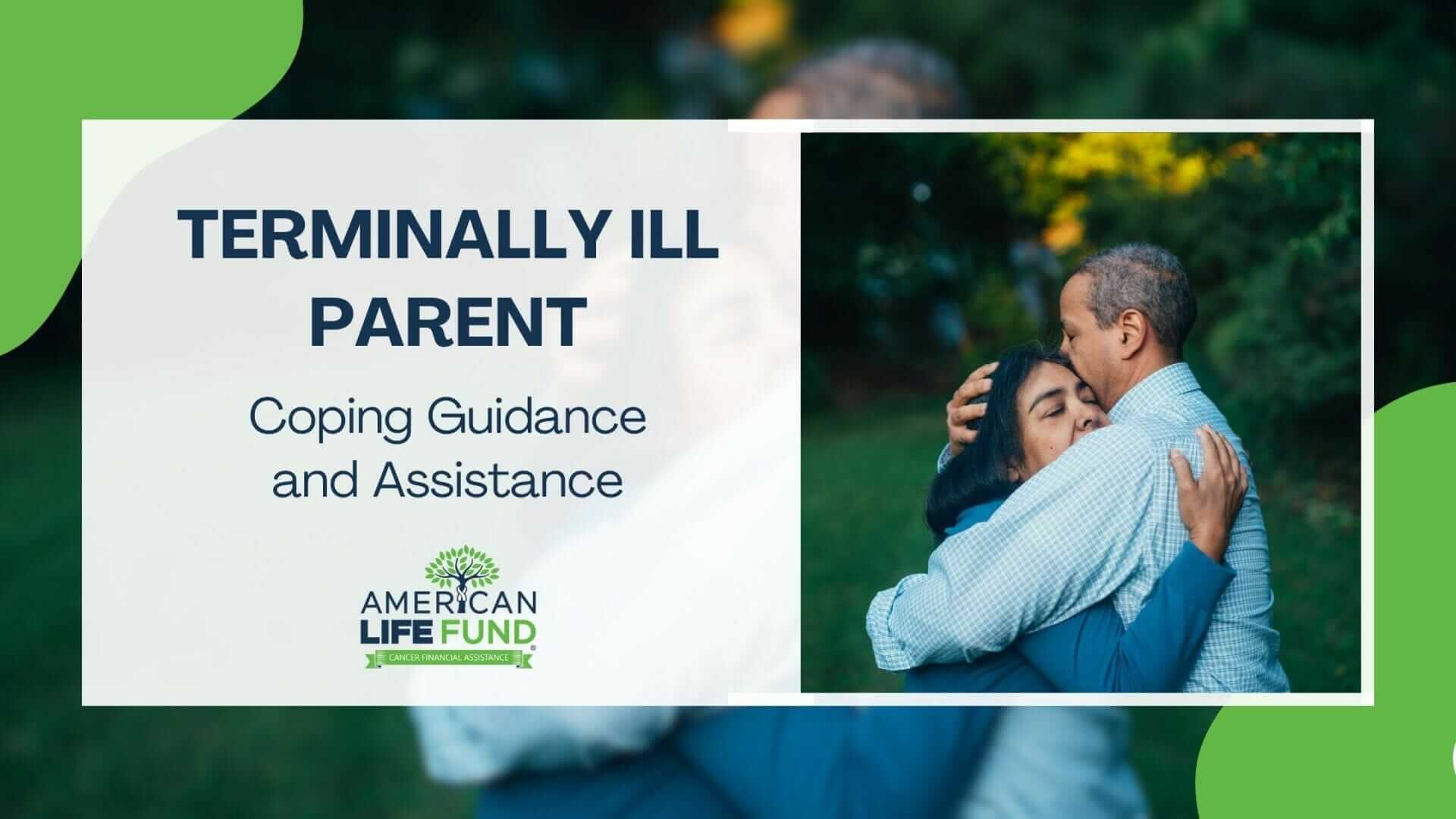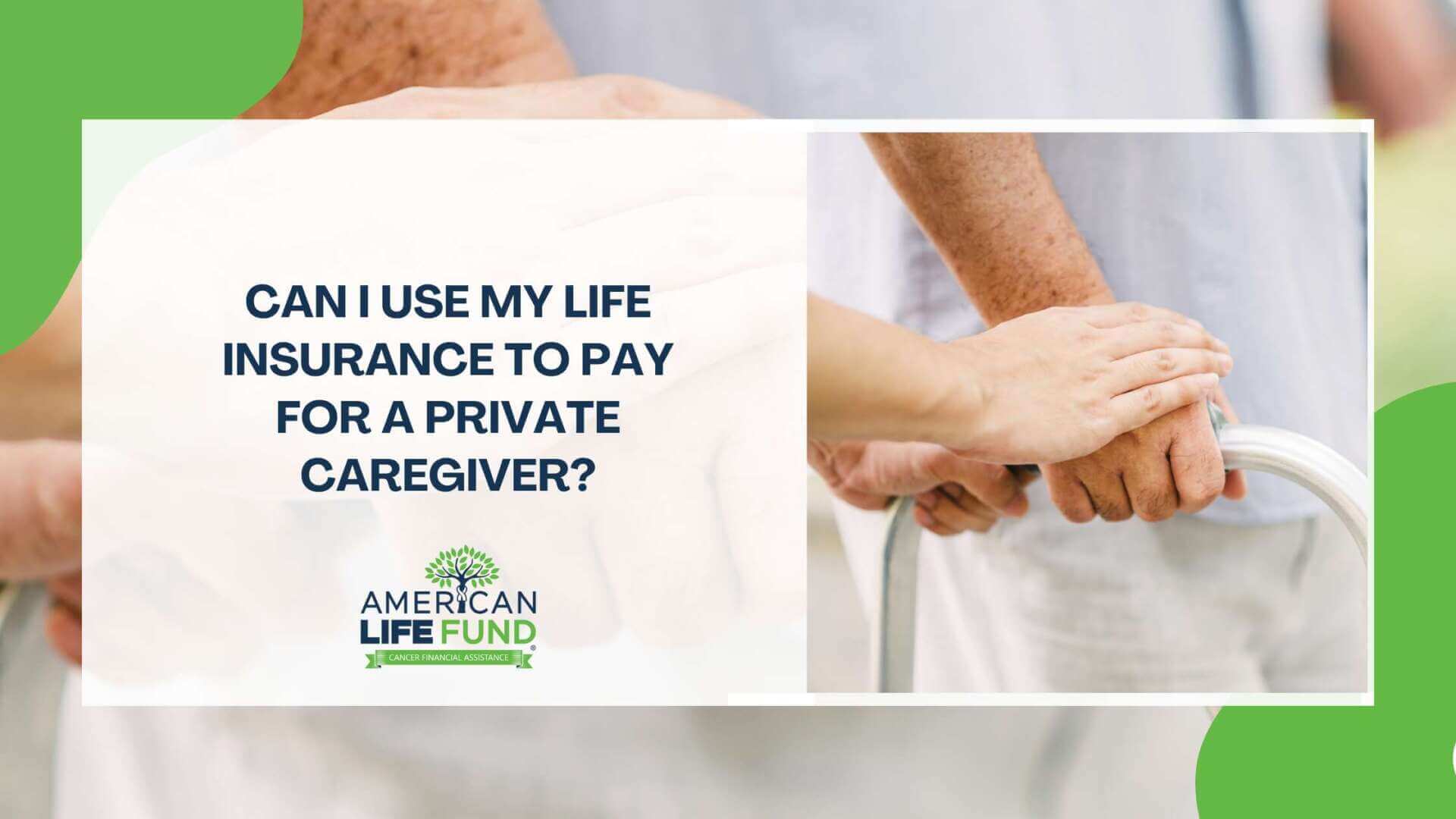Facing a parent’s terminal cancer diagnosis is one of the hardest things you can experience. You may feel guilty, overwhelmed and unsure how to cope with your loved one’s illness.
The road ahead might feel overwhelming, but you’re not alone. With the right guidance and support, we can help you navigate this challenging time in the best way possible.
This article offers advice on supporting your parent through their cancer journey, communicating with them about their terminal diagnosis, and taking care of yourself during this difficult time.
Anticipatory Grief When Facing a Parent’s Terminal Cancer
Anticipatory grief is a natural and emotional response to a parent’s life threatening illness. It includes feelings of deep sadness and mourning that can arise even before their loss. Many family members experience this emotional journey as they face the reality of their loved one’s declining health.
Recognizing and understanding this form of grief is an important step in preparing for the difficult road ahead.
What Is Anticipatory Grief?
- A Natural Response – Feeling grief before a loss occurs is completely normal. It doesn’t mean you’re giving up hope or that your love is fading. Instead, it’s your mind’s way of preparing for the changes that lie ahead.
- Emotional Diversity – Anticipatory grief can bring a mix of emotions, including sadness, fear, joy, and gratitude. Remember, everyone experiences this process differently, and it’s okay to feel a range of emotions without judgment.
Ways to Cope with Anticipatory Grief
Cherish the Present Moments
- Focus on the time you have now with your parent.
- Engage in activities that bring joy – watch movies, share stories, or cook a favorite meal.
- Create positive memories that you can hold onto.
Seek Emotional Support
- Talk openly about your feelings with friends, family, or therapists.
- Join support groups, either online or in person, to connect with others going through similar experiences.
Prioritize Self-Care
- Take care of your emotional and physical health.
- Try activities like meditation, journaling, or nature walks to calm your mind and stay grounded.
Embrace Hope and Strength
- Having anticipatory grief doesn’t mean losing hope.
- It shows the depth of your love and your ability to prepare for what’s ahead with compassion and resilience.
Anticipatory grief is a valid and natural experience when facing a parent’s terminal illness. By acknowledging your feelings, cherishing the moments you have, and seeking support, you can make it through this emotional time with strength and love.
Understanding the Impact of Terminal Cancer on Families
A terminal cancer diagnosis doesn’t just affect the health of the individual, it impacts the entire family in profound ways. From young children to adult relatives, everyone feels the emotional weight of this life-altering situation.
Emotional and Relational Changes
- Families may experience a wide range of emotions- sadness, fear, anger, and grief.
- Relationships might shift or become strained, requiring open communication and empathy to maintain stability.
Supporting Children and Adolescents
Explaining a parent’s diagnosis to children or teenagers can be particularly challenging. Consider:
- Using age-appropriate language to explain the situation.
- Encouraging questions and validating their emotions.
- Seeking guidance from counselors or healthcare professionals to support conversations about end-of-life care.
Addressing Family Grief
- Recognize signs of anticipatory grief within the family.
- Encourage family members to share their feelings and lean on support groups or professional therapists to create a sense of community and understanding.
By addressing each family member’s emotional needs, it’s possible to process this situation with strength, compassion, and preparedness for the challenges ahead.
How to Cope with a Parent with Terminal Cancer: Tips & Recommendations
1. Lean on Each Other and Seek Support
- Share the weight of your parent’s diagnosis with family members.
- Consult healthcare professionals for guidance.
- Join support groups, both local and online, to find emotional solace and practical advice.
2. Create or Join a Local Support Group
- Look for community support groups focused on cancer caregiving.
- These groups offer a safe space to share experiences, advice, and coping strategies.
3. Find a Reputable Cancer Care Center
- Research and locate a cancer care center near you.
- These centers provide access to specialized treatments, resources, and expertise to help both patients and families.
4. Communicate Openly with Your Parent
- Have heartfelt conversations about their illness and feelings.
- Create understanding and connection through honest discussions that validate emotions.
5. Don’t Shoulder the Burden Alone
- Share responsibilities with other family members.
- Rely on your support network to manage both emotional and practical challenges.
6. Prioritize Your Own Well-Being
- Focus on self-care – exercise, eat well, and rest.
- Take mental health breaks through meditation, hobbies, or journaling to process emotions.
7. Seek Professional Therapy
- Sometimes, the emotional burden is too heavy to handle alone.
- A licensed therapist can provide tools to process emotions and develop coping strategies.
8. Acknowledge Different Coping Mechanisms
- Understand that each family member may cope differently – some with anger, others with withdrawal or denial.
- Approach everyone with empathy and patience while respecting their individual responses.
9. Balance Caregiving and Personal Life
- Supporting your parent is important, but don’t lose sight of your own life goals and well-being.
- Maintain personal boundaries to protect your mental health while continuing to support your parent.
Look for Online Communities for Support
When dealing with a parent’s cancer in a delicate family situation where leaning on each other isn’t possible, it can feel isolating and emotionally challenging.
However, there’s a lifeline, online support groups, and forums for those facing a loved one’s terminal cancer. These digital communities offer a safe haven to connect with others who empathize with your experience and provide valuable advice, emotional support, and a sense of belonging.
Here is a list of online support groups and forums for cancer survivors:
- 4th Angel Mentoring Program: Pairs you with experienced mentors who understand cancer and provide emotional support.
- Inspire: Connects people with health conditions, including cancer, allowing them to share stories, ask questions, and offer support.
- MyLeukemiaTeam: Recommended for leukemia-affected individuals, offering a place to connect, share experiences, and get practical advice.
- Lotsa Helping Hands: Helps streamline caregiving tasks among friends and family with tools like a shared calendar and message boards.
- Cancer Connect: Combines the latest cancer treatment news with a moderated social community for patients and caregivers.
- Cancer Support Community: A global nonprofit offering support, education, and hope through community centers, hospitals, and online platforms.
- Cancer Survivors Network (CSN): A peer support community from the American Cancer Society, connecting patients, survivors, caregivers, and families.
- CaringBridge: Allows users to create private web pages for sharing patient updates and photos and coordinating assistance.
- Inspire: A dedicated platform uniting individuals affected by cancer, serving as a hub for social interactions and professional guidance.
- Lotsa Helping Hands: Simplifies caregiving coordination with a calendar and message boards, offering mobile apps for iOS and Android users.
- Know Cancer: Unites, informs, and supports those touched by various forms of cancer through an online community.
- MyLeukemiaTeam: A safe social network for those affected by leukemia, connecting members to share experiences and treatment insights.
- Navigating Cancer: Offers tools and resources for active health management, promoting collaboration between patients, medical teams, and personal support networks.
- Smart Patients: An online community for patients and families to discuss treatments, share challenges, and gain insights across various health conditions.
Things You Can Do to Help Your Parent with Terminal Cancer
You can help your parent with terminal cancer in many ways, such as assisting with their daily tasks, staying positive for them, and providing emotional support for them when they need it most.
Here are seven ideas to assist your parent:
- Help with Daily Tasks: Due to treatment, your parent may be too tired. Assist with cooking, cleaning, and errands to make their life easier.
- Stay Positive: Maintaining a positive attitude, despite the challenging circumstances, can offer crucial support and optimism to your parent.
- Be Present: Spending time and being there when they need you is a precious gift during this difficult time.
- Provide Emotional Support: Listen, discuss their feelings, and offer a shoulder to lean on, providing the emotional support they need.
- Care for Belongings: If your parent receives palliative care, help them manage their belongings, lightening their load.
- Discuss End-of-Life Decisions: Have a challenging but essential conversation about end-of-life decisions to ease the grieving process for both of you.
- Plan End-of-Life Care: Prepare for the future by considering full palliative care, writing a will, and arranging funeral services if your parent’s illness is terminal.
Help with Financial and Legal Matters
A terminal cancer diagnosis often brings financial challenges that can add to the emotional weight of an already difficult situation. Helping your parent manage these practical concerns can relieve stress and ensure their care and comfort remain the top priority.
The cost of palliative care can range from $2,000 to $10,000 per month depending on the level of care needed, while home health aides and medical equipment can add thousands more to your monthly expenses. For many families, these costs quickly become overwhelming, especially when insurance coverage falls short.
American Life Fund provides compassionate financial solutions like viatical settlements, turning life insurance policies into immediate funds. This can help you cover critical care expenses, manage daily living costs, and focus on what truly matters—spending quality time with your loved one.
Exploring Financial Relief Options
Consider a Viatical Settlement
If your parent has a life insurance policy, selling it through a viatical settlement can provide immediate cash funds to help cover:
- Medical treatments
- In-home care
- Daily living expenses
American Life Fund specializes in viatical settlements, guiding families through the process with compassion and expertise. Their services can help turn a life insurance policy into the financial support your parent needs to focus on quality of life and peace of mind.
Learn more about how American Life Fund can help you during this difficult time.
Additional Ways to Manage Costs
- Fundraisers – Online platforms like GoFundMe or local events, such as charity auctions or benefit concerts, can bring in extra funds while raising community support.
- Government Assistance – Programs and nonprofits offer financial aid for medical care, home assistance, and even transportation services.
- Private Organizations – Charities and healthcare groups often provide grants or low-cost care options for families in need.
Read about the financial benefits for the terminally ill with our blog.
Addressing Legal Concerns
Taking care of legal matters can also ease anxiety for both you and your parent. Help them:
- Prepare a Will – Clearly outline how assets should be handled.
- Set Advance Directives – Ensure medical preferences are respected.
- Assign Power of Attorney – Appoint someone to make financial or medical decisions if necessary.
Financial and legal planning may feel daunting, but options like viatical settlements through American Life Fund can offer fast financial relief to help ease the stress. Addressing these practical matters allows your family to focus on what truly matters, spending time together and finding peace during this difficult time.
What to Expect from Your Parent with Terminal Cancer
Watching a loved one face stage 4 cancer is deeply emotional and challenging. While each person’s experience is unique, there are some common physical changes and symptoms to be aware of as the body begins to decline.
Physical Changes to Expect
- Respiratory Issues – Coughing, shortness of breath, and fluid buildup (edema) are common as the body slows down.
- Weight Loss & Appetite Changes – Rapid weight loss and reduced appetite may occur, reflecting the body’s diminishing need for nutrients.
- Skin Changes – Skin may appear dry, pale, or discolored, often due to dehydration or poor circulation.
- Sleep Patterns – Increased fatigue and longer periods of sleep are natural as the body conserves energy.
- Confusion & Agitation – Disorientation, restlessness, or nonsensical speech can signal emotional distress or the final stages of illness.
- Incontinence – Loss of control over bladder or bowel functions is common as the body’s systems shut down.
- Pain – Many experience physical pain due to cancer progression, making pain management an important part of care.
Emotional and Behavioral Changes
- Unusual Requests or Speech – Your parent may express unexpected thoughts or make unusual requests as their mental clarity fades.
- Withdrawing from Loved Ones – Emotional withdrawal or a desire for more solitude is common and often signals acceptance of what’s to come.
- Fatigue and Weakness – A profound sense of tiredness may take over, making even simple tasks feel draining.
- Temperature and Skin Variations – Hands and feet may feel cold or appear bluish, reflecting changes in circulation near the end.
Providing Comfort and Support
While witnessing these changes can be heartbreaking, your presence can bring peace and comfort.
- Focus on small acts of care – holding their hand, playing music, or sharing quiet moments.
- Continue to express love and reassurance, even if communication becomes difficult.
- Don’t hesitate to involve palliative care specialists to make sure that your parent’s comfort in their final days.
Supporting Your Parent with Strength and Love
Coping with a parent’s terminal cancer is one of life’s most difficult experiences, but you don’t have to face it alone. From emotional support to financial relief, there are resources to help you through every stage.
If financial burdens feel overwhelming, organizations like American Life Fund can provide immediate financial assistance through viatical settlements, allowing you to focus fully on your parent’s care and well-being.
Contact us today to discuss how we can help turn your life insurance policy into funds for medical care, living expenses, or peace of mind for your loved ones, see if you qualify here.
Qualify For A Viatical Settlement
Frequently Asked Questions
How can I make sure my dying parent is comfortable during treatment?
Work closely with your health care team to address pain management and symptom relief. Focus on creating a comfortable environment and encouraging activities that bring joy, whether it’s listening to music, enjoying nature, or participating in religious services that provide emotional comfort.
Are there financial assistance programs to help families dealing with a life-limiting illness?
Yes. Many organizations, including local nonprofits and cancer support groups, offer financial help for medical bills, hospice care, and living expenses. Families can also consider options like viatical settlements through American Life Fund to access immediate funds for ongoing health and care excellence.
How can I balance family life, work, and caregiving?
Balancing family life and caregiving can be overwhelming. Set clear priorities, communicate openly with your employer about flexible schedules, and delegate tasks whenever possible. Don’t forget to schedule time for self-care to avoid burnout and allow yourself to feel sad without guilt.
How do I prepare my family for the loss of a dying person?
Begin by having open and honest conversations about emotions, plans, and expectations. It’s important to address legal preparations, including wills and advance directives. Creating memory books, recording stories, or simply sharing time together can help preserve cherished moments.
Is there a right or wrong way to grieve?
No, grief looks different for everyone. Whether you feel sad, withdrawn, or overwhelmed, know that there’s no right or wrong way to cope. Encourage family meetings to discuss emotions, and seek outside help, like counseling or religious services, if needed.
How can friends and extended family provide support?
Loved ones can assist with practical needs, such as preparing meals or helping with transportation. Religious services or simply listening and being present can provide emotional comfort. Encourage friends and family to offer support without judgment.
What resources are available to help children cope with a dying parent?
Children may struggle to understand a dying parent’s illness. Books like Supporting Children When Someone They Love Has a Serious Illness and podcasts like Grief Out Loud can help explain these situations in age-appropriate ways. Counseling and group therapy can also provide additional support.






